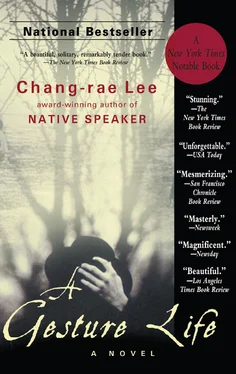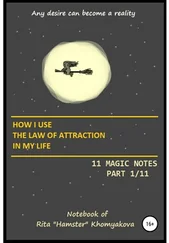MARY BURNS once said to me, “You’re truly an unexpected sort, Franklin Hata. Like no one I’ve ever known.”
I’ve been reflecting on those words in recent days, as I’ve not felt like swimming much, opting instead to walk longer than usual, my new route taking me past her old house twice, coming and going. It was her compliment to me, spoken early in our friendship, in those heady though still reposeful weeks after we had become physically intimate with each other, if not yet as lovers. Later on she said something quite similar to me by the poolside, but of course it was meant then as a sober appraisal of our all-but-dissipated relationship, which was as critical as Mary Burns could ever be of me. I remember that day as being just as it is now, late one afternoon near the end of the season. She sat in the teak deck chair with a towel tied around her waist, her navy blue one-piece still wet from her twenty laps. When a chilly wind swept through she pulled on the rumpled white men’s dress shirt she often used as a wrap, her silver-golden hair swept back neatly with a velvety black band, the cast of her eyes opaquely shaded behind the large ovals of her sunglasses.
She was particularly laconic that weekend, for she’d had a most unpleasant phone conversation with her eldest daughter some days before. The young woman had been asking about her mother’s will for some time; she and her husband were apparently a high-earning couple who somehow still lived beyond their means and were constantly in debt. For several months once, Mary Burns had to make the mortgage payments on their Manhattan apartment, lest they lose it to the bank. Her daughter had called that week not because they were in trouble again, but rather because they were “looking ahead,” and wanted to know exactly how much Mary Burns would be leaving to them in stocks and bonds and cash, as well as whatever interest she could expect in the Mountview house and a large bungalow with acreage on Fisher Island. They wanted a financial picture for themselves, she told her mother, in order to plan their lives accordingly.
I was visiting at her house that day when she received the call. When she hung up she returned to the living room where we’d been reading together after lunch, and though I hadn’t heard her speak any way but placably to her daughter, I could clearly see that she was distracted. She sat down at the other end of the long sofa, and when I asked she briefly recounted to me what her daughter had wanted.
After a while I said, “I hope she was satisfied with what you’re leaving her.”
“What?”
“Her inheritance.”
“I don’t know,” she said, suddenly looking at me, stunned. “I don’t know how much it is.”
“Oh, you couldn’t tell her anything?”
“No,” she answered, with great somberness. “I never knew she thought about me that way.”
“Well, surely she will be pleased,” I said, something in me trying now to put the subject to rest, “no matter the amount.”
Mary Burns was silent, and despite the fact that for the rest of the afternoon we didn’t converse much at all, everything seemed mostly fine. She offered me as she always did a thick slice of her homemade marble pound cake to go with my tea, and when it was time for me to leave she let me peck her on the cheek. I felt all was well again, or at least as well as it had been during that last month, which I see now was a period of the most agreeable passivity, an inert state that neither of us — being alike in many ways — was willing to disturb. And yet the differences were crucial, too, for while Mary Burns was just the kind of woman I could have befriended and come to love, being exactly partnered for someone like me, for her I was perfectly wrong. Better for Mary Burns that I should be a man who could set her afire like a bowl in a kiln, better that I could so frustrate and anger her that I’d breach the thick jacket of her grace and unleash her woman’s fury, to make her finally crack, or splinter, or explode.
The next morning she came by to swim as she did most Sundays. She would simply walk around the side of the house and begin her laps while I was still in the kitchen preparing breakfast. She liked a plain meal of oatmeal porridge with diced apples and a cup of black coffee, and I was more than happy to make it that morning, seeing her there leaning on the curved stainless steel ladder as she tucked her hair inside her swimming cap. Her body was trim and fit, her longish legs tanned, and from where I stood she could have been a woman in her late twenties or early thirties, not yet even in the prime of her life. I was amazed and humbled. She looked toward the patio and the kitchen but didn’t wave back at me, and I thought the reflection of the sun against the panes of glass must be blocking her vision. The next I saw she was gone, the surface of the water gently rippling with the wake of a neat dive. I watched from the stove for her to reappear. When she didn’t I thought I had miss-seen her go in and quickly surveyed the rest of the property, and when again I didn’t find her I stepped out through the French doors onto the patio. The water was astonishingly calm. I kept searching the far end of the dark pool for the bob of her head, and yet nothing would rise. The seconds passed. A bubble of panic came up in my chest. I knew I should run and dive in but another feeling was holding me back, like tethered weights on my legs, this pulling-down horror of what I might see.
But with a great gasp she rose, like a shot, by the near edge of the pool. She had gone the whole length and back. She leaned over onto the slate surround, hacking and coughing terribly. I rushed to her but she said weakly, “Something’s burning,” and I realized the porridge was probably boiling over onto the coils.
“Are you all right?” I asked her, and she nodded. I rushed back to the kitchen and took the pot off the burner, though by the time I returned to her she was sitting in the deck chair as I’ve described, with nothing so unusual about her except the slightest tinge of blue in her neck and face. And we sat that way for a while, neither of us having anything to eat or drink, just sitting and listening to the westerly breezes filtering through the first dry-edged leaves of the treetops.
At some point she said, “I suppose you’ll be leaving all of this to Sunny.”
“Yes,” I quickly replied, though of course I hadn’t really considered such things yet, as she was only fifteen at the time. But almost immediately the notion seemed more complicated than I expected, as my trouble with Sunny was deepening by the day, enough so that I’d begun to wonder whether she and I would have any relationship at all in the future, or if we did, what kind of feeling she would have for me when both of us were old. It was then I understood better what had upset Mary Burns about her daughter’s phone call. There is a need for the belief — even if illusory — that despite the ever-obvious evidence of familial messiness and complication, one’s child will always hold the most unconditional regard for her parent, the same one no doubt that Mary Burns felt her heart spill over with when she was handed her newborn daughter, and which I am sure washes over me whenever Thomas tugs my hand. We wish it somehow pure, this thing, we wish it unmixed, unalloyed with human hope or piety or fear or maybe even love. For we wish it not to be ornate.
And yet it always is. And when I tried to have Mary meet my gaze, so that I might show at least one momentary glimpse of what I could offer, she patently refused, sitting stolidly behind her shading sunglasses, her wide, thin mouth set with weariness and rigor. Soon enough she got up and slipped the towel from her waist, then quickly stepped into her loose athletic pants. I rose, too, and she hugged me tightly, and she kissed me on the ear and cheek, and held me fast once more, such that I was almost sure our day would simply resume. But she shouldered her jute bag and, smiling weakly, said without a trace of irony, “You’re a marvel, I think.” Then she spoke a barely audible goodbye. And then she walked around the house and was gone.
Читать дальше











![William Frith - John Leech, His Life and Work. Vol. 1 [of 2]](/books/747171/william-frith-john-leech-his-life-and-work-vol-thumb.webp)
![William Frith - John Leech, His Life and Work, Vol. 2 [of 2]](/books/748201/william-frith-john-leech-his-life-and-work-vol-thumb.webp)